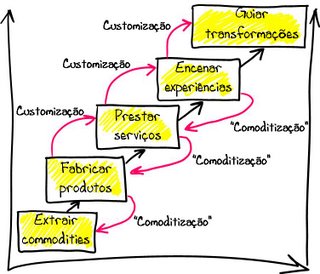Reparem na aposta.
.
Uma marca que vende máquinas fotográficas... "máquinas fotográficas?" perguntarão alguns, agora que os telemóveis e smartphones tratam disso:
"Selling a $27,000 camera is no snap—especially when that hefty price doesn’t even include the lens. For Leica Camera, the challenge is compounded by the fact that it has lost more than a third of its U.S. dealers, who have fallen victim to competition from the likes of Best Buy (BBY) and Costco Wholesale (COST)."
Máquinas fotográficas topo de gama ...
.
A marca perdeu mais de um terço do canal de distribuição para as Wortens e Rádio Populares lá do sítio... preço, preço, preço (BTW, agora são essas lojas a sofrer a concorrência do online... preço, preço, preço). Pergunta sacramental, uma marca de máquinas fotográficas fabricadas na Alemanha tem ADN para competir pelo preço?
.
Não!
.
OK! Então, vamos fugir desse campeonato! Vamos para o outro extremo:
"So at a time when an increasing number of brands are bolstering their ability to sell online, the German camera maker is rolling out its own stores to woo serious photography buffs."
A concentração não é no preço, é no valor:
"Leica’s first U.S. outlet opened in Washington, D.C., last month, and the company is rolling out two more stores in Miami and New York this summer. By March 2016, Leica says its current roster of 37 stores will have grown to 200 worldwide. They’ll stock a range of models from the entry-level $700 V-Lux 40 point-and-shoot camera to the top-of-the-line $27,000 S2."
Há garantias de sucesso? Não...
"“It is a high-risk strategy,” says Walter Loeb, president of retail consulting firm Loeb Associates. “Leica needs to establish itself more directly in the U.S., but it’s a small market for high-priced cameras, and it’s highly competitive.”
...
Leica is opening stores at a time when U.S. consumers are buying fewer cameras, given the quality and convenience of taking photos with smartphones such as Apple (AAPL)’s iPhone."
Só que a Leica não se dirige ao "U.S. consumer"
"Leica’s new stores are luxurious and minimalist, like its cameras. The outlets feature black leather furniture from Germany and gray tiles from Italy. The sole color accent: the red featured in the Leica logo. Stores include a retail space, a studio area to demonstrate products, and a gallery—to exhibit photographs shot with Leica cameras—that can be converted into a lecture room for the company’s Leica Akademie photography courses."
Esta descrição da distribuição do espaço nas lojas é interessante e, deveria chamar a atenção dos lojistas que se sentem ameaçados pelo online... um espaço para a interacção, para a aprendizagem, para a partilha...
“We stand for a certain image of quality, and this is something we wanted to show in this environment,” says Schopf, who wouldn’t say how much Leica is spending on the stores. “We are showing a dedication to the quality of photography.”"
...
"The bottom line: Mimicking luxury clothing designers, pricey camera maker Leica will open 160 of its own stores by 2016 to sell the allure of photography."
.












